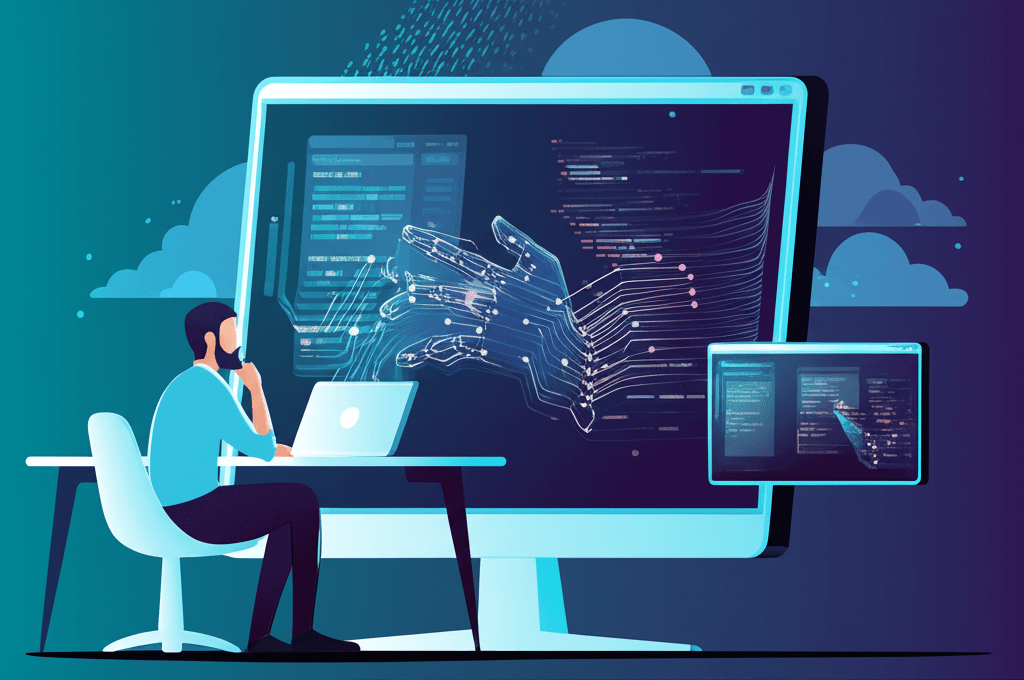OpenAI's Codex Shifts from Co-Pilot to Autonomous Co-Worker
Codex evolves from co-pilot to co-worker with deep IDE integration and automated GitHub reviews, enabling autonomous development.
August 28, 2025

OpenAI is fundamentally reshaping the landscape of software development with a suite of powerful new features for its AI coding assistant, Codex. The updates, which include a deeply integrated IDE extension and the capability to perform automated code reviews within GitHub, signal a significant leap from AI-assisted coding to a more autonomous, collaborative paradigm. These enhancements are designed to embed Codex directly into the developer's natural workflow, allowing them to delegate complex tasks, accelerate reviews, and ultimately focus on higher-level problem-solving without leaving their preferred coding environments. The new functionalities represent a deliberate shift in vision, moving Codex from a "co-pilot" that suggests code to a "co-worker" that can independently manage and execute entire software engineering tasks.
At the core of this evolution is a push toward a seamless, unified development experience where AI is an active participant rather than a passive tool.[1] Developers can now utilize a new IDE extension available for popular editors like VSCode, Cursor, and Windsurf, enabling a fluid transition of tasks between their local machine and Codex's cloud-based sandbox environment.[1][2] This "cloud-to-local" handoff is critical, as it allows a developer to initiate a complex task—such as scaffolding a new feature or refactoring a large module—and delegate its completion to Codex running in the background.[1] The AI agent operates in a secure, isolated container preloaded with the project's repository, where it can read and edit files, run commands, and execute tests to ensure the generated code functions as intended.[3][4] This capability to offload time-consuming work allows developers to remain in their creative flow while the AI handles the more mechanical aspects of coding.
Perhaps the most impactful new feature is the direct integration of Codex into the GitHub ecosystem to accelerate code reviews.[1] Teams can now configure automatic code reviews, empowering Codex to proactively analyze pull requests and provide feedback.[1] By simply tagging "@codex" in a GitHub comment, developers can trigger the AI to perform a review or even start a new task in the cloud based on the context of the pull request.[1] This feature addresses a common bottleneck in the software development lifecycle, where human reviewers can become overwhelmed with minor checks for style, syntax, and common errors. By automating these routine checks, AI-powered reviews can significantly improve efficiency, enforce consistent coding standards, and help detect subtle bugs or security vulnerabilities that might be missed by a human eye.[5][6] This allows human engineers to dedicate their limited time and cognitive energy to more complex architectural and logical assessments, ensuring that critical thinking remains central to the review process.[5]
The implications of these advancements extend beyond mere productivity gains; they suggest a fundamental redefinition of the software engineer's role. As AI agents become more capable of autonomously writing, debugging, and testing code, the developer's primary function shifts from pure code creation to that of a systems architect, reviewer, and orchestrator of AI agents.[7][4] Early adopters are already demonstrating this shift. Companies like Temporal and Superhuman are using Codex to accelerate feature development, manage repetitive tasks, and even allow non-engineers like product managers to contribute simple code changes under an engineer's supervision.[8][4] This new workflow, combining real-time AI pairing in the IDE with the asynchronous delegation of larger tasks, is what OpenAI envisions as the future standard for producing high-quality code.[4] The AI becomes an indispensable partner, handling the implementation details while the developer focuses on design, strategy, and innovation.
In conclusion, OpenAI's latest updates to Codex are more than just incremental improvements. The introduction of a seamless IDE extension and automated GitHub code reviews represents a significant step toward a future where AI is a fully integrated member of the software development team. By embedding these powerful capabilities directly into the tools developers use every day, OpenAI is not only streamlining workflows but also paving the way for a new era of human-AI collaboration. While the technology is still evolving, its trajectory points toward a future where developers are augmented, not replaced, empowered to build more complex and robust software faster than ever before. This evolution will undoubtedly reshape industry best practices, demanding a new set of skills centered on effective delegation, critical review, and strategic oversight of increasingly autonomous AI systems.[9]
Sources
[1]
[2]
[3]
[4]
[5]
[7]
[8]
[9]